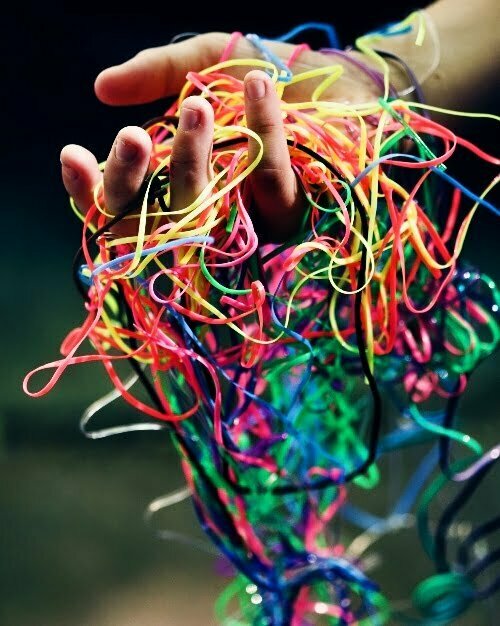What is an Object Relation?
Psychoanalysis definition: a theory describing the relationship felt or the emotional energy directed by the self or ego toward a chosen object.
Simply put, it’s a way the mind perceives, interprets and organizes information – there’s me, there is the other (person, idea, thought, memory, object, etc.) and there is the affective energy that connects me to the other, defining the relationship.
These defined relationships, object relations, begin developing early in life, prior to the capacities for abstract thought and self-reflection. Rudimentary, significant object relations are formed early in our experience and then the mind, interpreting and understanding our stream of experience, for the most part, is simply comparing what’s happening in the moment to something familiar from the past – projecting the past onto the present.
As we develop the capacity for abstract thought and imagining ourselves in events, the mental comparative processes used to ‘understand’ experience begins to usurp experiential exploration as the foundation for the process of understanding. One could see it as a type of mental shorthand to save us time and energy. This is reflected in conversation as well with the ubiquitous use of the word “like” in U. S. culture.
Object relations are the internal building blocks of self-identity.
Let’s talk about the celebrity in this drama – YOU.
The Self
Self – one’s cognitive and affective representation of one’s own identity
Drop the concept of true/false self for a while and simply associate the term self with your historical familiar sense of you.
Though we all have this “sense of self,” it, in fact, does not exist as anything more than a composite of memories, in short it is nothing more than a memory aggregate incorporated into present experience.
We’re going to explore the state of affairs we find ourselves in after normal ego development and a few decades of living. We’ll be looking at this from a view of process and we’ll be using some simple concepts to enhance understanding.
Unraveling
All of us have probably had the experience of untangling string and knots. It takes patience and stick-to-itiveness – perseverance. In addressing this ball of knotted history and identity we are going to need PATIENCE and STICK-to-ITIVENESS!
I don’t know about you, but there were times, in frustration, I said – to hell with it – and got out the scissors, but that won’t work in this situation because psychologically trying to cut the string is really just weaving another thread into the existing mess.
Frustration just pulls on a thread tightening the knots and adding more tension to the entire ball. Most of us have experience with a knot or two that was unmovable – think of that in terms of psychic knots and the amount of resistance and constriction it takes to maintain certain knots.
This is the beauty of understanding object relations – when you understand the process and the simple secret of unwinding the mess, it helps to support perseverance and patience. And, though challenges remain, a sense of joy and aliveness arise in our process.

Here is one of the secrets of engaging this process optimally:
Anyone who has untangled a ball of string knows that as you untangle each section or length of string, no matter how small, more space arises in the mess making progress easier and easier.
Often the first hurdle is finding an end to start with and that’s one of the beauties of object relations, you can start right where you are because the end of the most appropriate string is right here in this moment – in your present experience, even if your present experience is “nothing.”
Here is another powerful secret: as progress is made, give more and more attention to the space than to the mess of string. From experience, you may know that when the tangled mess includes more space, you can almost shake the rest of it free.
The power of space is something we will come back to, but let’s move on to our next illustration.
Constructing the Self
The Linchpin of an Object Relation
Maintaining Structural Integrity
Each of us has a range of energy/tension that helps define us. If it gets dialed-down or amped-up, we go to work consciously or unconsciously to get back into our comfort zone. This comfort zone is a big factor in the inner-child structure which we will discuss later.
But, it’s also a huge biological factor in regards to homeostasis and the charge/discharge regulation of our body.
So, we can’t get around working with affect and energy which can be challenging when our radio station is broadcasting doom and gloom and take shelter 24/7.
Another helpful hint:
In service of patience and perseverance, assume that your involvement with object relations is never going to end. Our normal mind is a comparative mind and affect is part of its filing system. The organizing system is not the problem, identifying with the content, the object relations is the problem.
You can’t stop the mind from doing what it does – interpreting what is perceived and taking action in terms of how it relates to the body (organ of perception) and this dimension of experience.

Up next…
Beyond Single Object Relations: Working with Segments and Structures of the Personality


 What is the Ego Self?
What is the Ego Self?




 Narcissistic injury is one of those loaded
Narcissistic injury is one of those loaded